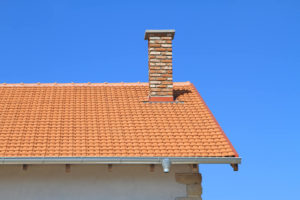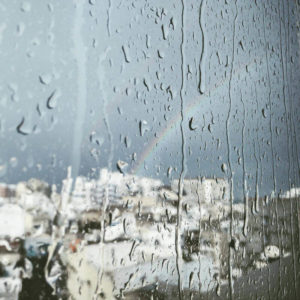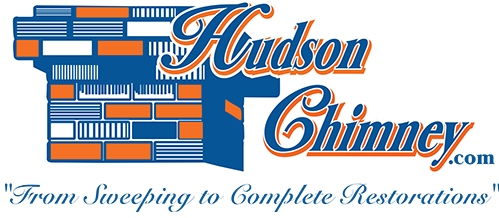by Mark Hudson | Dec 14, 2018 | chimney maintenance
Now is the perfect time to schedule your chimney services to add safety and value to your fireplace experience this winter. You should not use a chimney or fireplace that has not been serviced in the last 12 months. Using it can result in serious damage, and it can cause a loss of value, property, injury, and even death. However, to get the most out of your fireplace, you need to schedule your annual chimney services!
Routine Maintenance
 The most important services to complete annually for your chimney is your chimney sweeping and inspection. The Chimney Safety Institute of America (CSIA) and the National Fire Protection Association (NFPA) both agree that chimney systems need to be routinely cleaned and inspected. This keeps them running smoothly and more efficiently.
The most important services to complete annually for your chimney is your chimney sweeping and inspection. The Chimney Safety Institute of America (CSIA) and the National Fire Protection Association (NFPA) both agree that chimney systems need to be routinely cleaned and inspected. This keeps them running smoothly and more efficiently.
- Chimney Sweeping – When you schedule a chimney sweep with Hudson Chimney, you can count on a mess-free and professional experience. A certified professional will tarp off the area to prevent a mess, and they use brushes, rods, and a high-powered vacuum system to clean away all soot and creosote. Then they also inspect the exterior of the system. If there is a major issue with your chimney, we’ll know. We document our findings and present it to you, including photos and video footage, if necessary.
- Chimney Inspection – When you schedule a chimney inspection with Hudson, and you can count us. Our professionals will thoroughly inspect the interior and exterior of the system. They will check for all readily accessible portions and accessible portions, and they will even remove components if necessary to access the hazards. There are three levels of inspection, this allow us to search and inspect what is necessary without wasting time, resources, and money. If you schedule a level one inspection or a level two, and a level three is necessary, we will discuss options with you. Our goal is safety and function for your home and family, and we will do whatever it takes!
Preventative Care
However, sometimes even when you do all the necessary routine maintenance for your chimney system, things can still happen to cause damages. For example, high winds can dislodge your flashing, a flue fire can crack a liner or masonry, or seismic activity can shift masonry, cause gaps, or more.
Even minor cracks can become serious gaps and voids after a season of winter weather. You should avoid unnecessary damages by scheduling preventative measures now.
- Waterproofing – We treat chimneys with a waterproofing agent that protects your masonry all season long, year-after-year, is vapor-permeable. It doesn’t affect the way your masonry look either!
- Repairs – In addition to preventative services, repairs are essential for preventing winter damage. As soon as you notice a problem, or get a report of damage from your inspector, a repair should be scheduled. We repair parts and masonry to keep your family safe.
Contact Hudson Chimney today so that your fire is safe and warm all winter long. Call 904-282-4159 or contact us online.
by Mark Hudson | Sep 17, 2018 | chimney maintenance
The chimney is made to last a lifetime, or at least the life of your home! However, if a chimney is constructed properly, components installed properly, and the correct materials are used, it won’t be able to last a long time. So why do you need regular chimney sweepings, anyway? It can save you time and money in the future, and it can even save your life. There are five things that can turn your chimney into a disaster, but all of these factors are preventable and the dangers caused by them are easily avoidable.
Water
 You cannot control the weather, but you can prevent water from entering your chimney system. When water penetrates your chimney system, it damages it from the inside out, it can cause the following damages: rusted parts, damaged structure, ruined furniture, rooms, and decor, stained masonry, and more. Water in the system cause your chimney to drop its efficiency and raises risks for potential dangers. It also cause you to burn more wood, resulting in a smoky fireplace, allow mold to grow, and cause odors.
You cannot control the weather, but you can prevent water from entering your chimney system. When water penetrates your chimney system, it damages it from the inside out, it can cause the following damages: rusted parts, damaged structure, ruined furniture, rooms, and decor, stained masonry, and more. Water in the system cause your chimney to drop its efficiency and raises risks for potential dangers. It also cause you to burn more wood, resulting in a smoky fireplace, allow mold to grow, and cause odors.
Prevent chimney leaks by making sure your chimney is safe. Certain parts need to be protected to keep water out, this include the cap, crown, and flashing. Additionally, ask a Hudson Chimney expert about waterproofing services today. We use ChimneySaver’s Water Repellent to keep water from getting in, this is the best solution against water damages.
Amateur Work
Only a professional knows the ins and outs of comprehensive chimney care. They’re certified through classroom and field training. They also adhere to local and federal safety codes, and they have experience with all types of fire appliances. Hiring an amateur can result in dangerous hazards and costly repairs down the road. Instead, you should find a local CSIA-certified chimney sweep to take care of all your chimney needs. You should also read reviews and hire a professional who is qualified. Membership in chimney sweep guilds are a bonus, check out Hudson Chimney’s credentials here.
Environment Damage
Storms, earthquakes, tornadoes, and fires can cause some serious damage to the structure of your chimney. These can all cause your chimney to work less efficiently. The damage can be minor shifted parts or serious like leaning or spalling. The best thing to do for your chimney after a strong storm or natural occurrences is to visually inspect it. If you find damage, call a professional for a thorough inspection right away.
Freeze/Thaw Cycle
Water damage get worse during freezing temperatures. The freeze/thaw cycle is the process in which water penetrates and fills cracks in the masonry, freezes and expands, breaking apart the masonry, then melts again, moving further into the masonry to repeat the process. You should have your chimney system inspected annually, especially before winter, so that cracks and voids in the masonry are repaired. You should also invest in chimney waterproofing to prevent the freeze/thaw cycle and water penetration!
Neglect
The biggest threat to your chimney system is neglect. A chimney that is cleaned and inspected regularly is safe and more efficient. These services keep your chimney working safely and properly, save you money, prevent damage, and lengthen the life of your chimney system.
It’s time to really invest in your chimney and fireplace system, especially if you want your system to last a long time. Call Hudson Chimney at 904-282-4159 and schedule services today!
by Mark Hudson | Dec 5, 2016 | Firewood
Winter has arrived! So, you are probably ready to light a fire for holiday entertaining, family gatherings, or to simply enjoy a relaxing evening. When you’re ready to use your fireplace, don’t waste your time and energy by building an unsuccessful fire. Don’t allow frustration to get the better of you and decide it’s just not worth it. Make sure you’re building your best fire.
 Five Tips to Follow
Five Tips to Follow
- A clean and safe fireplace
The Chimney Safety Institute of America (CSIA) recommends annual chimney inspections and regular chimney sweeps. This is in order to maintain your safest and most efficient chimney. If your chimney is not working properly, or is damaged or dirty, it will not support your best fire. The draft may be obstructed, or water may penetrate the masonry. This makes the fire wood harder to burn. These types of problems will be resolved when you remember to schedule routine maintenance, like sweeps and inspections.
- Proper wood
Many homeowners might not know that your fire burns better and your chimney works more efficiently when you choose properly seasoned wood. Trees produce hard and soft wood. However, both burn differently, and contain different amounts of moisture. In order to build your best fire, it’s important to cut and let the wood dry for at least six months. When wood is seasoned it will begin to pull away from the bark. It will also crack, become pale in color, and become lighter. You can look for these signs when you buy wood, as well.
- The cold chimney
It can be difficult to get a good fire going when the chimney is cold. This can be a problem for homeowners in our mild Florida climate. This is because fire is not used for home-heating, but occasional entertaining and ambiance. You might go days without lighting a fire at all, and when you do the chimney is cold again. When the chimney is cold it can be hard to get the fire to vent properly. Consequently making it difficult to build your best fire. A good way to heat the chimney adequately is to light a tightly rolled newspaper and hold it just at the flue’s opening. Let the roll burn completely to heat the chimney, then proceed to build and light your fire.
- The top-down burn
If you can master the top-down burn, you will never again fumble around with fire tee-pees, or lose your paper and kindling under large logs. The top-down burn is an upside-down fire that has the kindling on top. This allows the flame, ashes, and cinders to fall as it burns, igniting the wood below. It is a more efficient burn, burning more completely.
- The damper and vents
The chimney is made up of many parts, and they all serve a purpose. Use the damper assembly to help you light your fire. By opening it while lighting your fire, you allow more oxygen flow to the fire.
Don’t let a poorly-built fire cramp your style. When you learn to build a fire, you are better able to enjoy your fire. Build your BEST fire this winter!
by Mark Hudson | Apr 8, 2014 | chimney maintenance, fire safety
Let’s Talk Creosote Removal
Have you noticed any black particles and burnt-like marks on your chimney walls? You might think it’s just stained because of the smoke, however these should not be underestimated, because creosote buildup can become quite dangerous.

Don’t forget to have your chimney cleaned and inspected at least once a year to maximize output and safety.
What is that black substance coating your chimney walls? It’s called creosote, a chemical byproduct of open combustion from burning either hardwood or softwood. These two types of wood usually need to be seasoned and dried up to at least six months so that only minimal production of creosote is made. This means that creosote production is inevitable and the biggest dilemma once creosote has built up in your chimney is the probability of chimney fires occurring.
So because we can’t prevent it from forming, the next best thing is to make sure that it is regularly removed. When you talk about creosote buildup, there are three levels. Thankfully our CSIA-licensed chimney sweeps here at Hudson Chimney are ready to take full control and assess, clean and remove creosote.
Level I
The first stage is usually called soot. It’s still flaky and dusty like ash only that it’s found in the chimney walls. It is the slightest form with maybe a layer or two and can easily be removed by a chimney brush. We usually just brush it off. The process takes very little time but before the removal process is done, we first inspect and do a little cleaning.
Level II
The second stage of creosote already has tar-like features. It is now harder to remove and we usually need to use stiffers or special kinds of brushes. By now, the layers are getting thicker. Removing it will take more time than usual. During this level, creosote is building up to be more flammable and more dangerous. Nonetheless, it can still be removed.
Level III
The last and final stage is the most difficult to remove and the most dangerous. It is no longer called creosote but it is now called glaze. It is thick, totally black and is like candle wax; a hard, glossy, dark mass. By now, the chance of chimney fires occurring is greater.
To prevent this, constant cleaning and removing of creosote is the ultimate key. Once creosote starts to build up, contact Hudson Chimney so that we can monitor and lessen the problem. Give us a call and we’ll tell you more!
 The most important services to complete annually for your chimney is your chimney sweeping and inspection. The Chimney Safety Institute of America (CSIA) and the National Fire Protection Association (NFPA) both agree that chimney systems need to be routinely cleaned and inspected. This keeps them running smoothly and more efficiently.
The most important services to complete annually for your chimney is your chimney sweeping and inspection. The Chimney Safety Institute of America (CSIA) and the National Fire Protection Association (NFPA) both agree that chimney systems need to be routinely cleaned and inspected. This keeps them running smoothly and more efficiently.
 You cannot control the weather, but you can prevent water from entering your chimney system. When water penetrates your chimney system, it damages it from the inside out, it can cause the following damages: rusted parts, damaged structure, ruined furniture, rooms, and decor, stained masonry, and more. Water in the system cause your chimney to drop its efficiency and raises risks for potential dangers. It also cause you to burn more wood, resulting in a smoky fireplace, allow mold to grow, and cause odors.
You cannot control the weather, but you can prevent water from entering your chimney system. When water penetrates your chimney system, it damages it from the inside out, it can cause the following damages: rusted parts, damaged structure, ruined furniture, rooms, and decor, stained masonry, and more. Water in the system cause your chimney to drop its efficiency and raises risks for potential dangers. It also cause you to burn more wood, resulting in a smoky fireplace, allow mold to grow, and cause odors.
